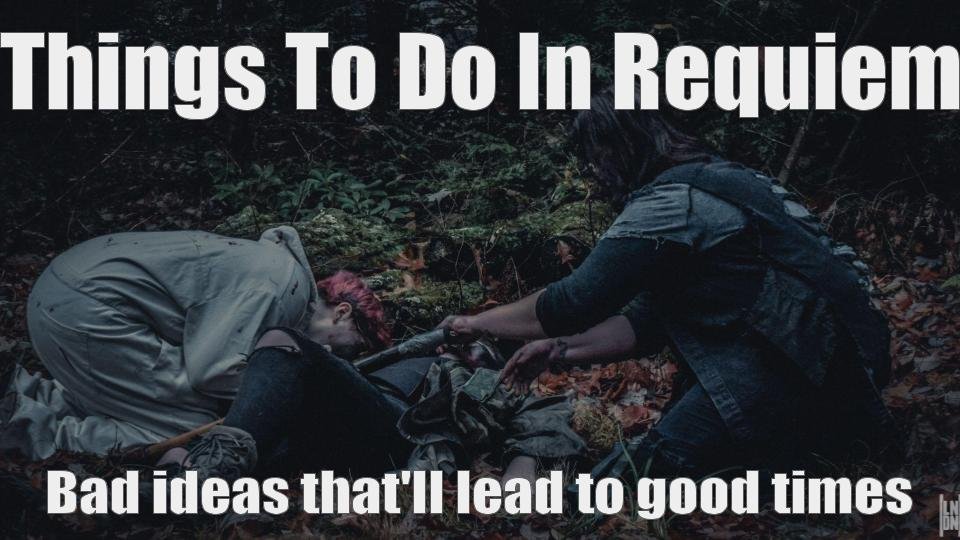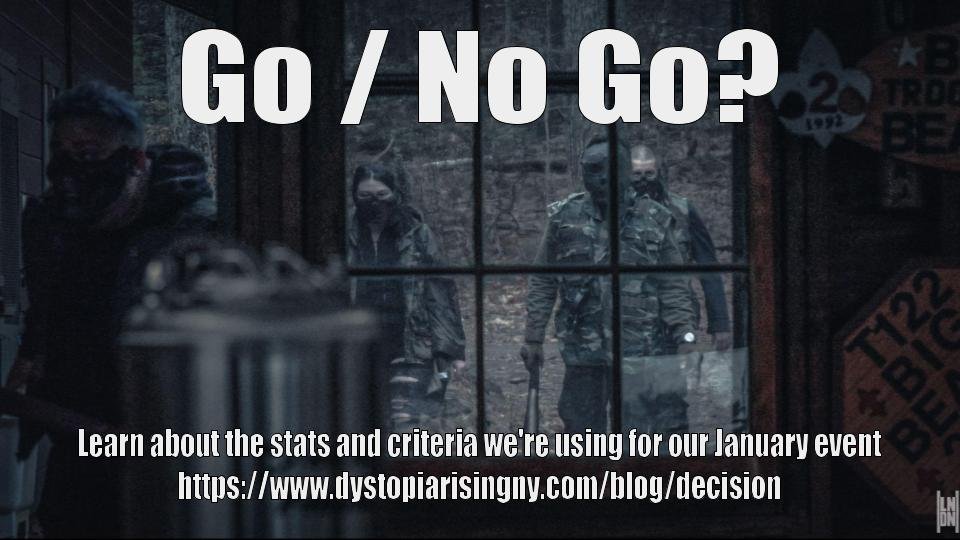As we prepare for an event that involves a lot of zed, the staff at Dystopia Rising New York (DRNY) wanted to go over our local Grave Mind, and how it works. While we strive to match our Grave Mind lore with the network as a whole, each chapter runs the Mortis Amaranthine (the formal term for the Grave Mind) a bit differently, and we want to make sure everyone has accurate expectations.
Read MoreLeadership in Larp
The problem with leadership in larp is that a good leader in character is very different from a good leader in real life. We all know people who we consider good examples of what a leader should be… perhaps a boss or a mentor, or even a family member. What we don’t do is ask ourselves: would this person’s leadership in the context of a story make the story better. In real life, leaders minimize conflict, unite groups, and make sure their people are healthy and happy. In a dystopian larp setting… those aren’t things we really want.
Read MoreRequiem Realpolitick
The town of Requiem and the settlements of the Fold are said to be “balanced on the edge of a razor” (there’s a reason we have one in our logo). We’ve talked before about the Families of Requiem and the Treaty of the Fold, but the setting we design only matters if the players know how to engage with it. Requiem offers a distinct perspective on politics and powers, with a tremendous gulf between what is said and what is done. When playing in Requiem, remember that the setting favors “Realpolitik” versus the “Rule of Law.”
Read MoreThings To Do In Requiem
Are you a Requiem regular? A visitor who’s coming for their first time? Dystopia Rising always offers zombies to fight and friends to meet, but Dystopia Rising New York also offers a chance to delve into our setting. But setting only matters if players can use it to role-play - you need something to do. So here’s three ways to get involved in the social and political play of Requiem next game.
Read MoreTo Run or Not To Run?
This post is about transparency - we want to address the January event and how we’re managing risk in regards to it. Over the past week, we’ve released a number of policies to manage risk… now we’re going to tie our efforts together and explain how we will make our decisions.
Read MoreCold Weather Larping
Cold-weather larping requires more work than just carrying extra socks: while larping in the heat can be rough, the cold offers unique problems that can wear you down. Huddling together in the dark can make for great role-play, but not if the player is uncomfortable or unhappy. Here’s some tips for staying warm enough to enjoy a cold-weather larp.
Read MoreSupply Bags
Our rulebook talks about Supply Bags, a mechanic that allows us to carry multiple item cards that don’t have associated phys reps, or use the same phys rep for multiple items. Here’s how we’ve learned how to use them at Dystopia Rising New York (DRNY), while remaining within the letter and the spirit of the rules.
Read MoreMeaningful Decisions
“Player agency.” These words strike fear in the hearts of larp designers and often show up in the feedback of dissatisfied players. It’s a tricky subject, because it always comes up in the negative: players don’t think about agency when they have it and immediately realize when they’ve lost it. Giving players their agency, however, is a problem that can be easily solved: all an experience designer needs to do is offer players a meaningful decision. This begs the question: what is a “meaningful decision?”
Read MoreThe Strange Case of Theft in Dystopia Rising
We covered Character versus Character (CvC) conflict in three parts earlier, and it’s time to talk about the oddest case of CvC in Dystopia Rising: theft. Theft occupies a unique place in terms of consent: it’s inherent to the game via the rules there’s no real way to opt-out of it.
Read MoreConsent and CVC (Part 3)
In Part 2, we talked about explicit consent, and how it was required for fighting, theft and infection loss. But how do we signal, obtain, and confirm explicit consent? Luckily we have tools described in our rulebook to obtain them. They include negotiation, the Conflict Check-In, and the Wasteland. We also have the Survival Ethos System (SES), also called the Red Ledger.
Read More









